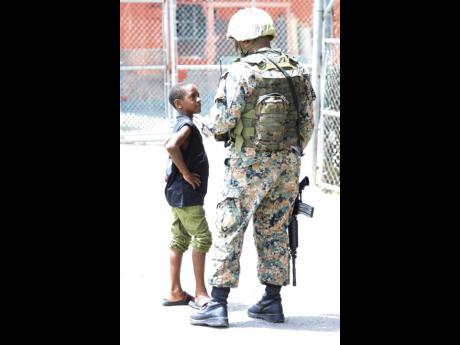RJRGLEANER/Don Anderson Poll | Soldiers in demand! - Jamaicans want more army personnel for regular crime-fighting duties
With the GLEANER-commissioned Don Anderson poll showing that 90 per cent of Jamaicans are in full support of having more soldiers carrying out daily policing, academic Dr Christopher Charles has suggested that the response was in keeping with the trust citizens have in the army.
The poll was conducted between February 15 and March 3.
Anderson found that the overwhelming majority of the 1,003 respondents polled want more soldiers to be part of regular policing. At the same time, 41 per cent of Jamaicans believe the police have been effective in leading the fight against crime, while 46 per cent had a contrasting view on the matter.
Charles argued that in countries all over, but outside of Africa and a few Asian countries where there is political manipulation of the army, the training, discipline and organisation of troops inspire respectability and trustworthiness among the population.
“They are well trained, organised and the chain of command is well established. Within the army, there are dire consequences for breaches, including court martials, and which can lead to dismissal. “So the institutional culture of discipline is well embedded in army culture, and people know that. That is part of the culture of trust and respect,” Charles, a senior lecturer in the Department of Government at the University of the West Indies, told The Gleaner yesterday.
He said that the JDF imposes more stringent sanctions against recalcitrant soldiers when compared with actions the police force takes against offenders.
Addressing trust issues and effectiveness of the police, Charles said police offices were very difficult to interdict, and a police commissioner could not immediately fire a lawbreaking cop.
“How the police have been used from 1962 to present has made them into the enemy of the people. The main thing the police do in Jamaica is not to solve crime, not to serve the people, but to fight crime,” he argued.
Charles said the militaristic approach to policing has turned the cops against civilians. He said unstructured housing developments and inner cities islandwide have made policing difficult. Police personnel, he said, feared for their lives.
“There are safeguards built in the force to prevent political manipulation and oppression. But it is these same safeguards that prevent their bosses from getting rid of corrupt cops,” stated Charles.

